When we think of childhood, images of children playing outside, soaking up the sun, and exploring the world around them often come to mind. This idyllic scenario is not just a way to pass the time; it’s a crucial part of development. But what exactly are the benefits of outdoor play for children, and why is it so important?
The benefits of outdoor play for child development are extensive and multifaceted. It goes beyond physical health, touching on social, emotional, and intellectual growth. Outdoor play encourages children to engage with their environment in a way that’s both fun and educational, promoting everything from muscle development to social skills, emotional resilience, and cognitive abilities. It’s an all-encompassing approach to development that prepares children for the future while allowing them to enjoy their present.
Let’s dive deeper into these benefits, understanding why encouraging our children to step outside is one of the best things we can do for their growth.
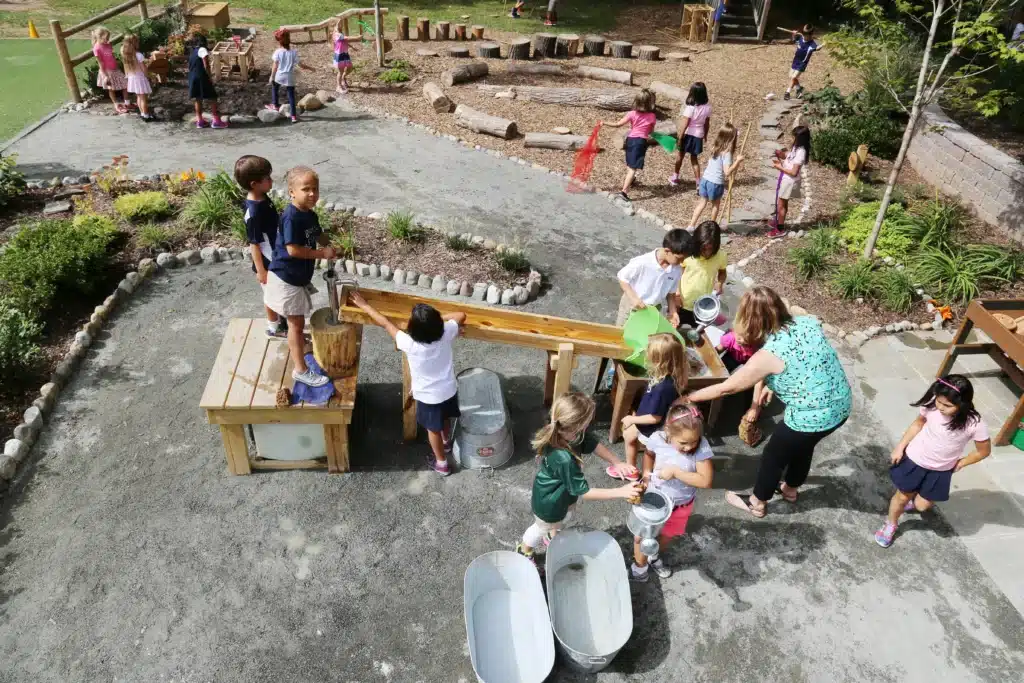
Physical Development Benefits of Outdoor Play
Enhances Physical Fitness
Outdoor play significantly improves children’s physical fitness levels. Activities like running, climbing, cycling, and playing sports increase cardiovascular endurance, muscle strength, and flexibility. This type of play ensures that children are engaging in the recommended daily physical activity, helping to prevent obesity and promote a healthy lifestyle from a young age.
Develops Motor Skills
Engaging in outdoor play helps children develop both gross and fine motor skills. Gross motor skills, such as jumping, throwing, and running, are enhanced through games and playground activities. Fine motor skills are refined through more delicate tasks like collecting small objects, drawing in the sand, or maneuvering playground equipment. These skills are crucial for children’s overall development and their ability to perform everyday tasks.
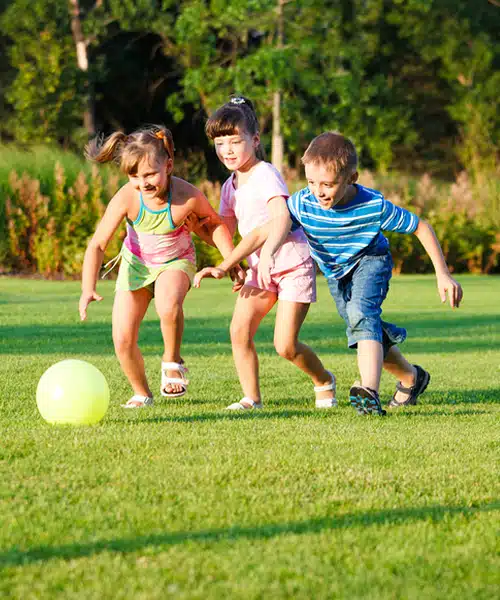
Promotes Bone and Muscle Health
Outdoor activities encourage movements that strengthen bones, muscles, and joints. Activities that involve weight-bearing, like walking and jumping, increase bone density and muscle strength, laying a healthy foundation for physical development. Strong muscles and bones reduce the risk of injuries and support lifelong physical health.
Improves Coordination and Balance
Playing outdoors often involves navigating uneven surfaces, climbing, balancing on beams, or riding bikes, all of which challenge and improve children’s coordination and balance. These skills are important not only for sports and other physical activities but also for everyday tasks and preventing falls.
Enhances Sensory Skills
Outdoor play exposes children to a variety of sensory experiences, from the feeling of different textures under their feet to the visual diversity of the natural world. This sensory play is crucial for cognitive development, helping children process and respond to sensory information, an essential skill for successful interactions with the world around them.
Encourages Healthy Habits
Regular outdoor play instills a preference for active pursuits over sedentary activities, fostering a love for exercise that can last a lifetime. By making physical activity a regular part of their lives, children are more likely to continue being active as they grow older, promoting long-term health and wellness.
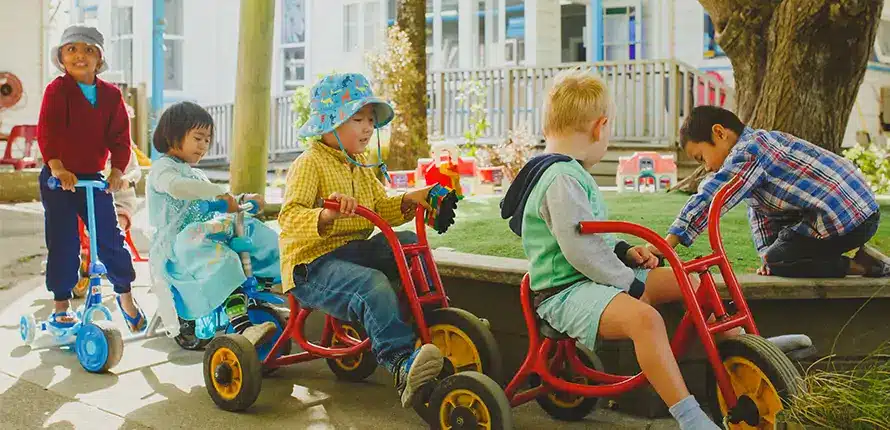
Social Development Benefits of Outdoor Play
Cultivates Communication Skills
Outdoor play naturally promotes verbal and non-verbal communication among children. As they navigate shared play spaces and games, they learn to express their ideas, negotiate roles, and articulate their needs and feelings. This interaction is a practical, hands-on way to develop language skills and understand the power of effective communication.
Enhances Teamwork and Cooperation
The essence of many outdoor activities lies in their collaborative nature. Whether it’s a sports game, a group adventure, or a shared project like building a sandcastle, children learn the importance of working together. These experiences teach them about compromise, respect for others’ ideas, and the joy of achieving a common goal, highlighting the benefits of outdoor play in nurturing cooperative spirits.
Builds Social Confidence
Navigating the social dynamics of outdoor play helps children gain confidence in their ability to interact with peers. Through repeated interactions, they learn to overcome shyness, assert their opinions, and make friends. This boost in social confidence is a crucial aspect of their overall development and well-being.

Fosters Empathy and Understanding
Outdoor play provides numerous opportunities for children to put themselves in others’ shoes. When conflicts arise, as they inevitably do, children learn to consider different perspectives and feelings. This empathy and understanding are vital social skills that contribute to building more compassionate individuals.
Encourages Inclusion and Diversity
The inclusive nature of outdoor play spaces allows children from various backgrounds to come together, promoting diversity and inclusion. This exposure to different cultures and lifestyles from a young age is one of the significant benefits of outdoor play, as it teaches children to embrace and celebrate differences.
Teaches Conflict Resolution
The unstructured and spontaneous nature of outdoor play often leads to disputes among children. These moments, though challenging, are invaluable lessons in conflict resolution. Children learn to negotiate, compromise, and resolve disagreements independently, skills that are essential throughout life.
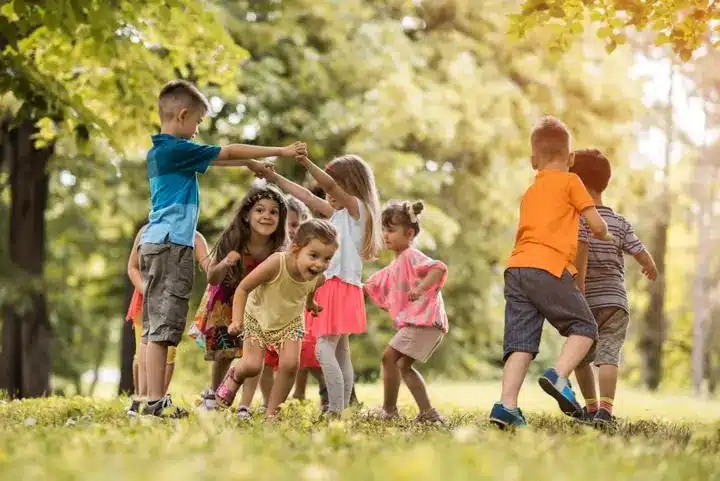
Emotional Development Benefits of Outdoor Play
Outdoor play significantly impacts a child’s emotional well-being. It serves as an open canvas where they can express themselves freely, test their limits, and navigate a variety of emotions. This kind of play is not just beneficial; it’s essential for building a foundation of emotional health.
The process of engaging in outdoor activities teaches children about risk and safety, helping them develop a sense of independence and self-confidence. Overcoming small challenges, like mastering a new playground skill, fosters resilience and a positive self-image. These achievements are crucial for a child’s self-esteem, teaching them that they can face and overcome obstacles.
Moreover, the natural joy and exhilaration of playing outside have a profound effect on a child’s mood. The benefits of outdoor play in reducing stress are well-documented, with physical activity and exposure to natural settings known to decrease cortisol levels. This stress reduction is vital for maintaining emotional balance, enhancing a child’s capacity for happiness and relaxation.
Social interactions during outdoor play also contribute to emotional growth. Through these experiences, children learn empathy by understanding and sharing the feelings of others, an essential skill for building supportive relationships.
In essence, the emotional benefits of outdoor play are manifold. They equip children with the emotional resilience needed to face life’s challenges with confidence. By encouraging outdoor play, we’re not just promoting physical activity; we’re supporting the development of emotionally healthy, well-rounded individuals.
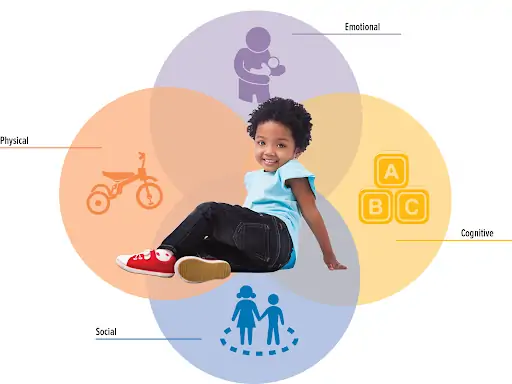


Intellectual Development Benefits of Outdoor Play
Outdoor play is a fertile ground for cognitive learning and development. It encourages curiosity, creativity, and problem-solving skills, essential components of intellectual growth. Through exploration and interaction with the natural world, children learn to think critically, ask questions, and seek solutions.
Stimulates Creativity and Imagination
One of the key benefits of outdoor play is its ability to stimulate creativity and imagination. The limitless possibilities of the outdoors allow children to invent games, navigate imaginary landscapes, and solve problems in innovative ways. This form of play enhances cognitive flexibility, allowing children to think outside the box and develop unique perspectives.
Enhances Problem-Solving Skills
The unpredictable elements of outdoor environments require children to adapt and solve problems continually. Whether it’s figuring out how to build a stable sandcastle, navigate a complex playground structure, or organize a game with rules, outdoor play challenges children to think critically and make decisions. These experiences are invaluable in developing robust problem-solving skills.
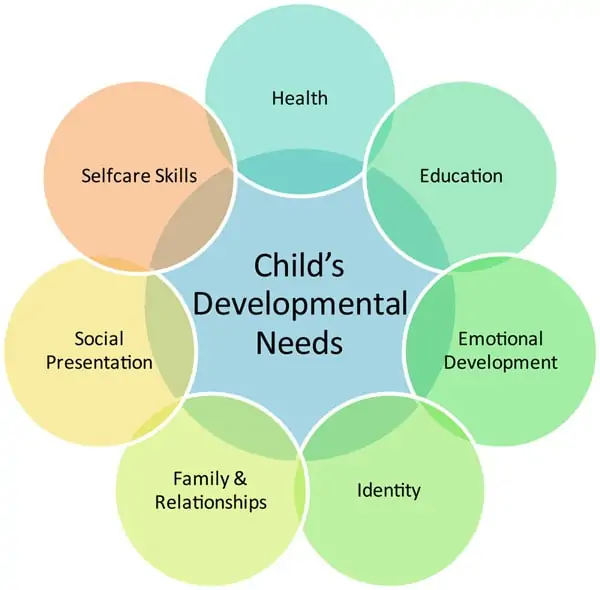
Promotes Exploration and Curiosity
The natural curiosity of children is magnified in outdoor settings, where each rock, tree, and puddle can spark a new question. Outdoor play encourages children to explore their environment, leading to a deeper understanding of the world around them. This exploration fosters a love of learning and an inquisitive mindset, crucial for intellectual development.
Encourages Real-World Learning
Outdoor play is rich in real-world learning opportunities. Interacting with natural elements teaches children about biology, geology, and environmental science in a hands-on manner. These lessons are more impactful and lasting than those learned through books or screens, providing children with a practical understanding of complex concepts.
Supports Language Development
The social interactions that occur naturally during outdoor play are excellent opportunities for language development. Communicating with peers, negotiating rules, and storytelling all contribute to enhancing vocabulary and improving communication skills. This aspect of outdoor play is especially beneficial in developing strong language skills.
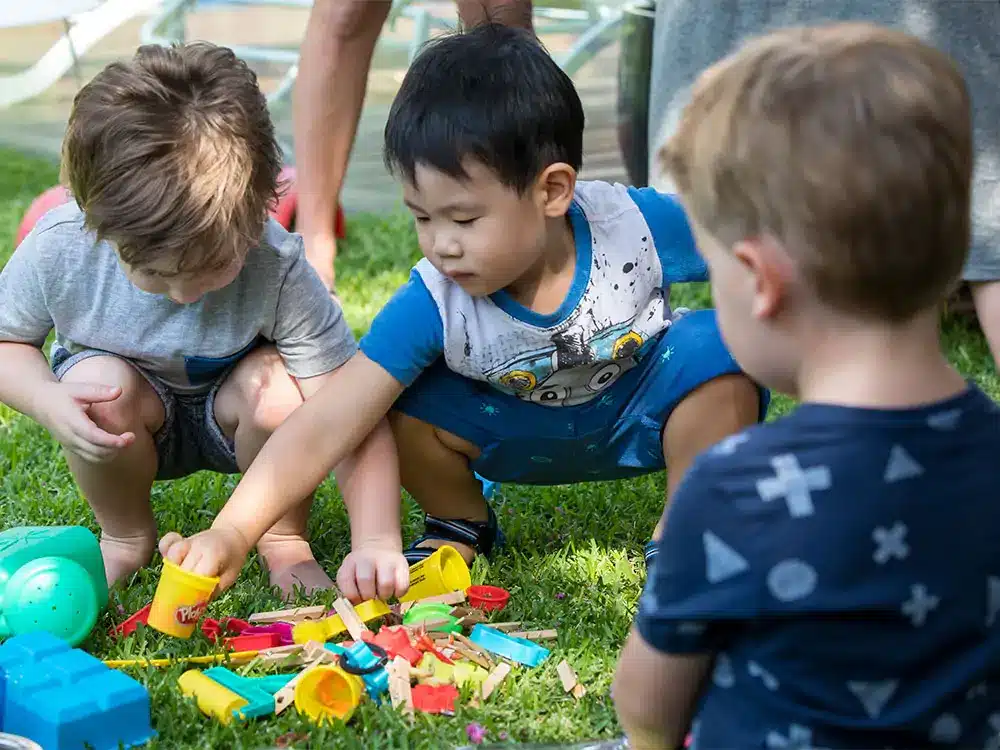
Mental Health Benefits of Outdoor Play
The mental health benefits of outdoor play are significant and multifaceted. Engaging in activities outside provides children with a natural escape from daily stressors, reducing feelings of anxiety and depression. The combination of physical activity and exposure to natural light during outdoor play has been shown to increase serotonin levels, enhancing mood and overall well-being. Furthermore, the sensory experiences provided by nature can calm the mind, promoting relaxation and reducing symptoms of ADHD. Outdoor play is not just a break from routine; it’s a vital component of mental health maintenance, offering a foundation for children to handle stress more effectively.
Importance of Outdoor Play for Younger vs. Older Children
Outdoor play benefits children of all ages, though its impact varies across different stages of development.
Younger Children
For younger children, outdoor play is crucial for sensory development and motor skills. It offers them a canvas to explore textures, sounds, and sights, stimulating cognitive growth in a hands-on environment. This exploration is vital for early brain development, laying the groundwork for future learning.
Older Children
As children grow, the benefits of outdoor play evolve to meet their changing needs. For older children, it becomes an important outlet for exploring independence and social dynamics. Complex games and activities challenge their problem-solving skills and creativity, while social interactions become more nuanced, involving cooperation, competition, and negotiation.
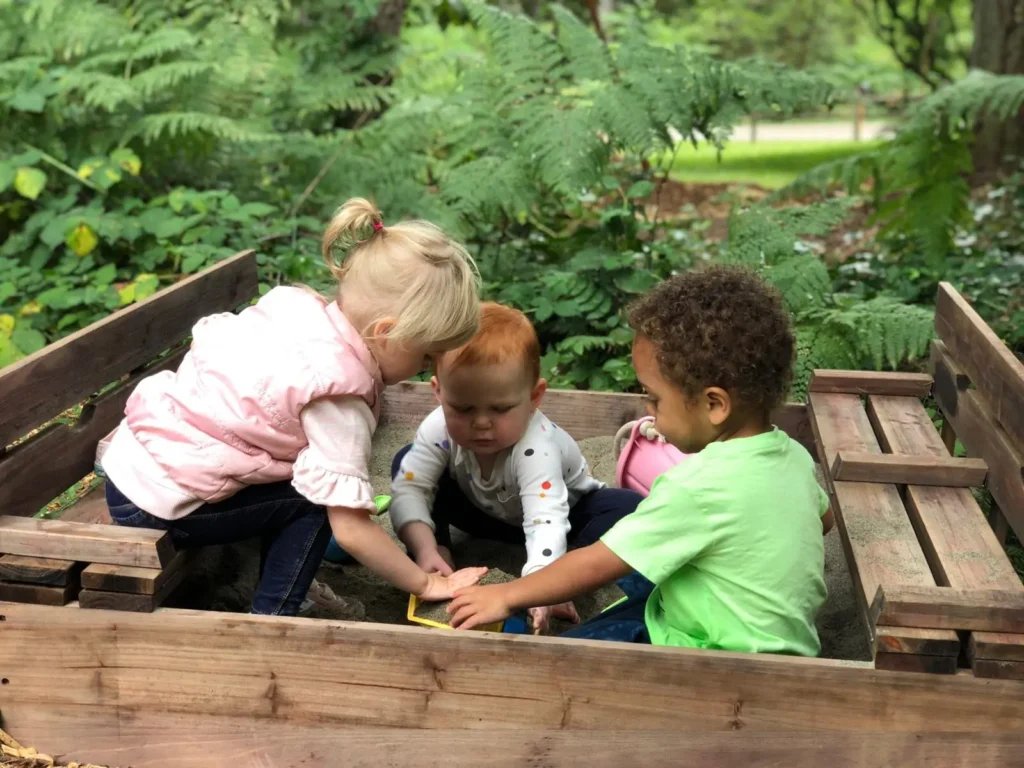
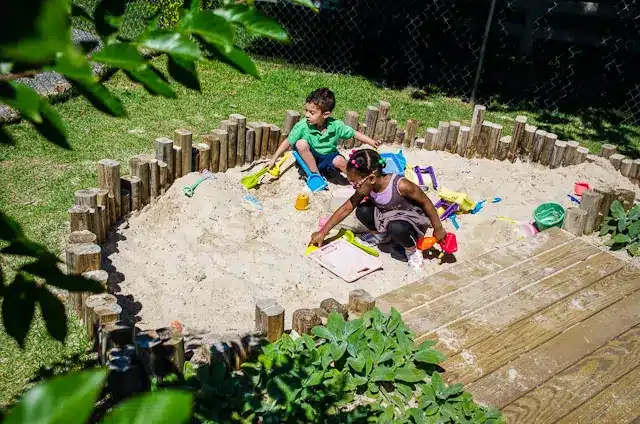
How Can You Encourage Your Child to Play Outside?
Encouraging children to play outside might seem challenging in a digital age, but several strategies can make outdoor play more appealing:
- Create Routine: Incorporate outdoor play into the daily schedule, making it as regular as meal times or homework.
- Lead by Example: Engage in outdoor activities yourself. Children are more likely to follow suit when they see adults valuing and enjoying outdoor time.
- Provide the Right Tools: Offer toys and equipment that encourage outdoor play, like balls, bikes, or even simple gardening tools for younger children.
- Explore Together: Discover new parks, nature trails, or outdoor spaces together. The adventure of exploring new places can be exciting for children and adults alike.
- Limit Screen Time: Set reasonable limits on screen time to encourage children to find alternative ways to entertain themselves, naturally leading them outdoors.
- Make it Social: Arrange playdates or family gatherings outdoors. Social interactions can make outdoor activities more engaging and enjoyable for children.
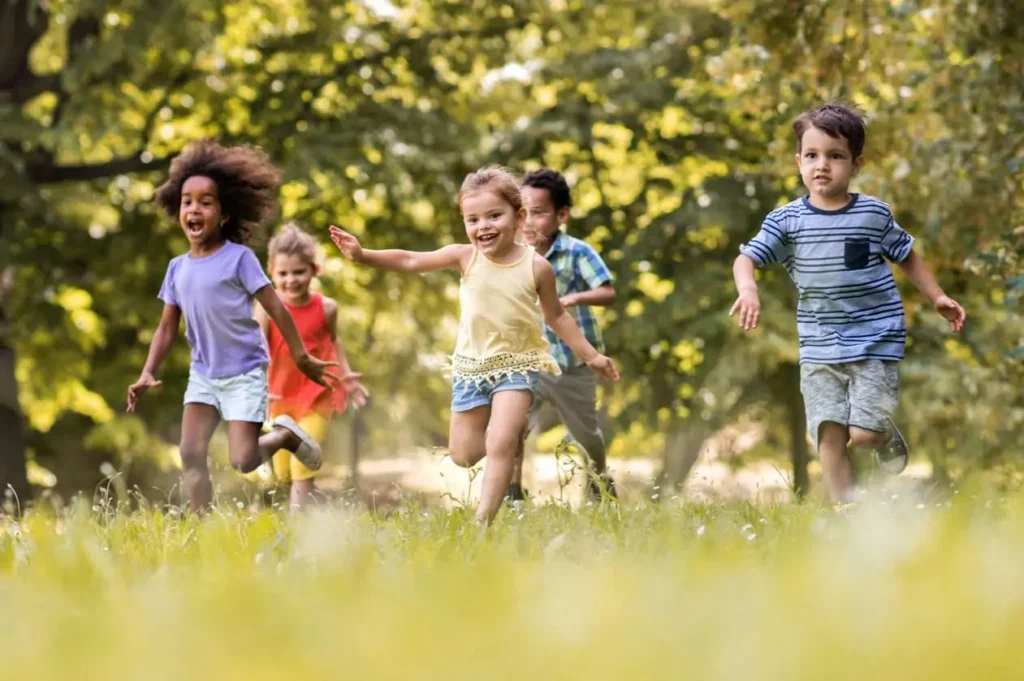
Fostering Environmental Stewardship
The relationship children build with nature through outdoor play is foundational in developing an enduring sense of environmental responsibility. Interacting with the environment allows children to witness the consequences of human actions on natural ecosystems firsthand, fostering a deep-rooted appreciation for the planet’s health. Activities such as participating in cleanup efforts, engaging in recycling projects during play, and learning about local flora and fauna encourage children to become advocates for the environment. This hands-on approach to learning about sustainability and conservation efforts empowers children with the knowledge and motivation to make eco-friendly choices and instills a commitment to protecting natural resources for future generations.
Building Confidence through Risk-Taking
Outdoor play inherently involves navigating uncertainties and challenges, offering children invaluable lessons in resilience and self-belief. The act of taking calculated risks, whether climbing higher, jumping farther, or exploring unknown paths, teaches children about their physical and mental boundaries. Successfully overcoming these challenges not only boosts their confidence but also enhances their ability to handle adversity and ambiguity in various aspects of life. This development of self-assurance is crucial for children’s overall well-being and equips them with the courage to face the complexities of the world with a positive and assertive attitude.
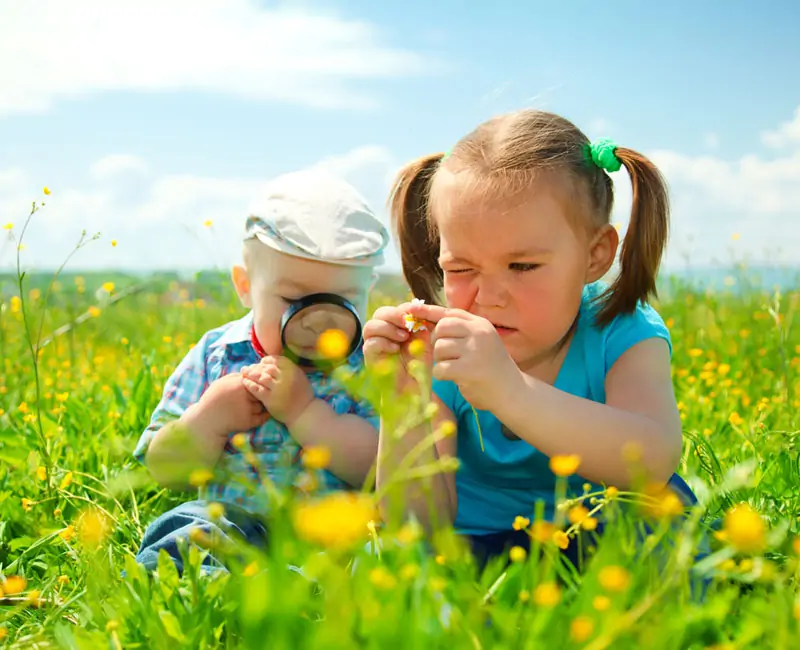
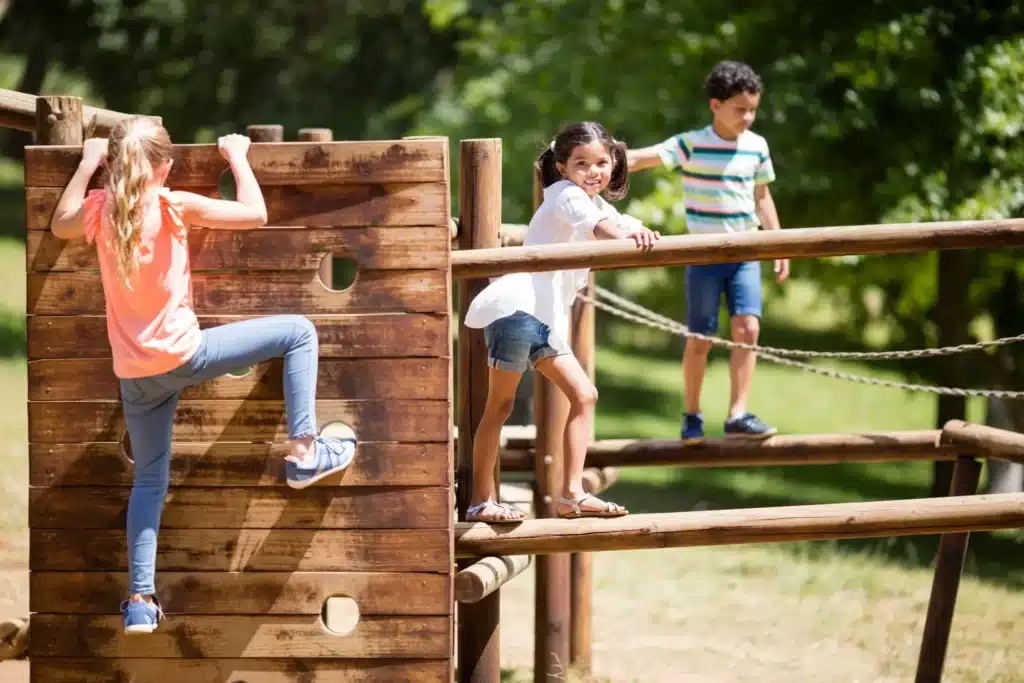
Enhancing Language and Learning
Outdoor play significantly impacts children’s language development and cognitive learning, providing a rich context for exploration and discovery that stimulates intellectual growth.
- Expanding Vocabulary: The diverse experiences offered by outdoor play introduce children to new words and concepts, expanding their vocabulary and understanding of the world.
- Promoting Inquiry-Based Learning: The natural curiosity sparked by outdoor environments encourages children to ask questions, seek answers, and engage in problem-solving activities, enhancing their critical thinking skills.
- Stimulating Imagination and Creativity: The unstructured nature of outdoor play allows children to use their imagination, invent games, and create stories, fostering creativity and abstract thinking.
Reducing Behavioral Problems
The benefits of outdoor play in mitigating behavioral issues are profound. The freedom afforded by the great outdoors allows children to channel their energy positively, reducing instances of hyperactivity and attention deficits. The natural environment acts as a calming influence, helping to alleviate stress and anxiety, which are often at the root of behavioral challenges. Regular engagement in outdoor activities promotes better emotional regulation, leading to improved social interactions and a decrease in conflict and aggressive behaviors. By offering a constructive outlet for their energies and emotions, outdoor play contributes to a more balanced and harmonious development.
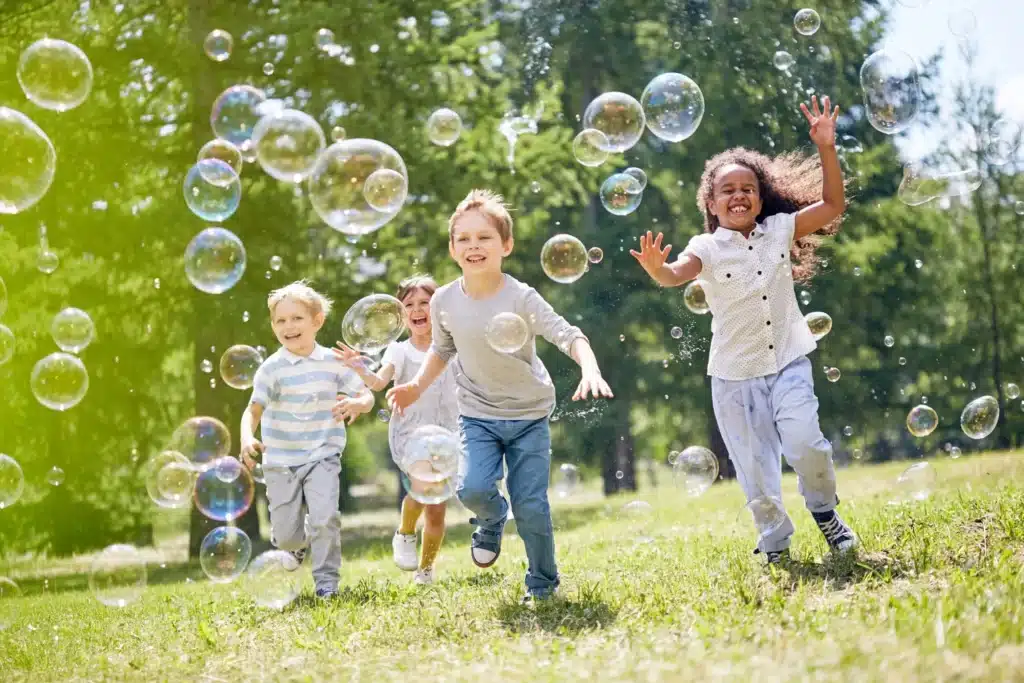
In wrapping up, the essential benefits of outdoor play for child development are vast and varied, touching every aspect of growth from physical to emotional, social, and intellectual realms. Through exploring nature, taking calculated risks, engaging in creative play, and interacting with peers, children develop a robust foundation of skills and qualities that will serve them throughout their lives. Outdoor play is not just an activity but a vital educational tool, fostering environmental stewardship, confidence, communication skills, and much more.
Encouraging children to step outside and embrace the wonders of the natural world is one of the greatest gifts we can offer. It equips them with the resilience to face life’s challenges, the curiosity to continue learning, and the empathy to care for those around them and their environment. As we have seen, the benefits of outdoor play are integral to raising well-rounded, healthy, and happy individuals.













